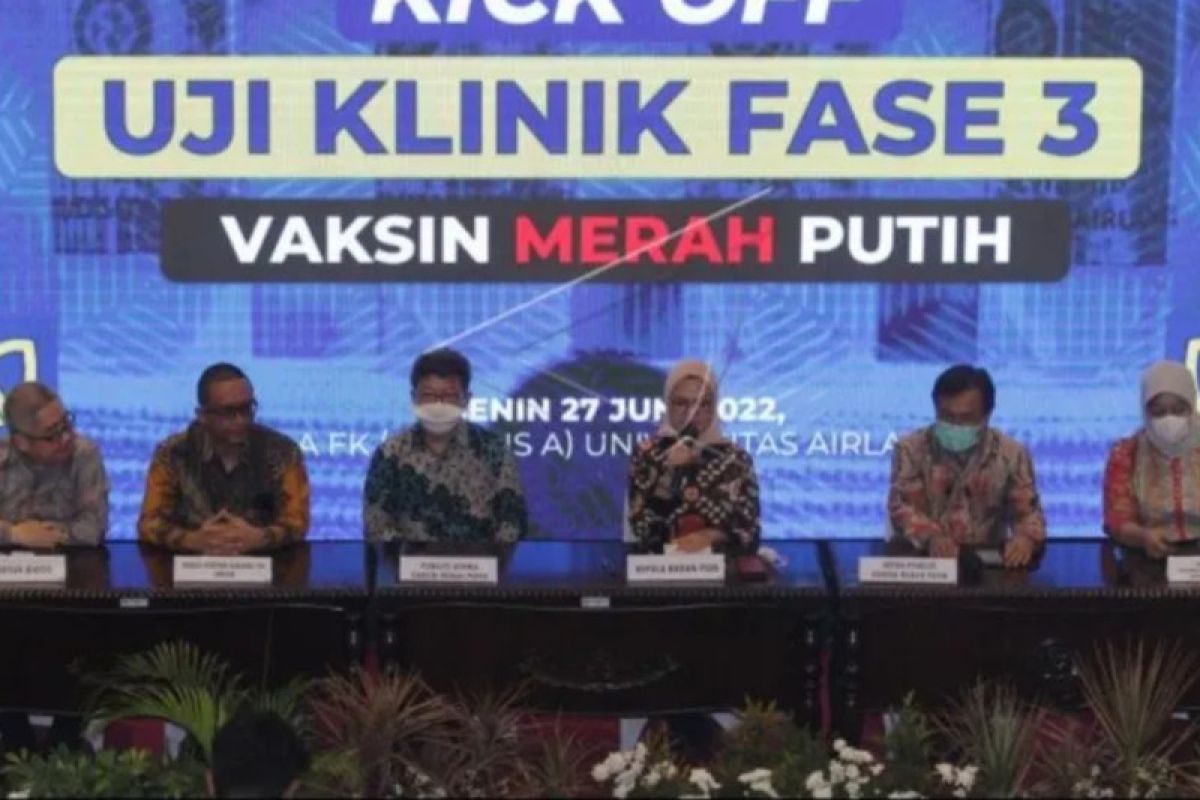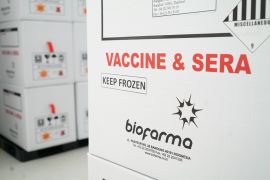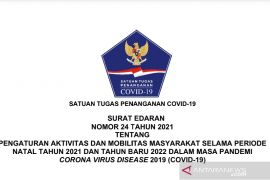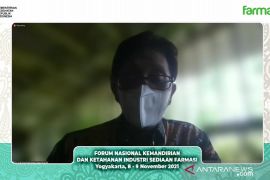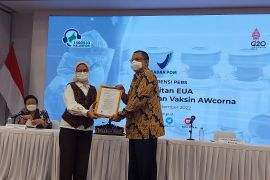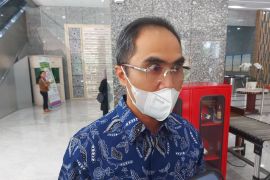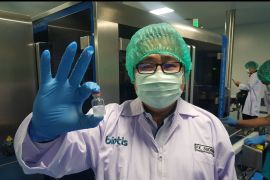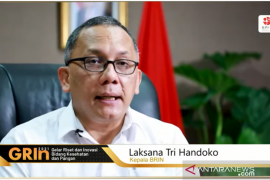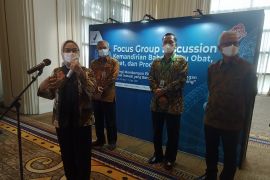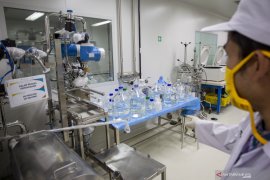On September 9, 2020, six institutions and universities took part in the Merah Putih Vaccine development consortium.
The participants comprised the Eijkman Molecular Biology Institute and the Indonesian Institute of Sciences (LIPI) that carried a recombinant protein platform, Airlangga University (Unair) with an adenovirus platform, and Bandung Institute of Technology (ITB) with the adenovirus vector and recombinant protein.
Moreover, Gadjah Mada University was present with a vaccine made from a recombinant protein platform, while the University of Indonesia (UI) was developing DNA, mRNA, and Viral Like Particle (VLP) platforms.
In general, vaccine development could take a long time and up to dozens of years. In fact, it was not certain that vaccine development would immediately produce the targeted results.
A year later, the timeline compiled by the Merah Putih Vaccine Consortium to speed up the development process was hampered due to the complex level of development and the risk of failure that turned out to be quite large.
Related news: Domestic COVID vaccine to soon complete final clinical trial phase
The main problem faced at that time was that Indonesia never had a team with experience in clinical trials in developing vaccines from scratch. The experience of the research team in vaccine development has only reached the preclinical trial stage.
In addition, Indonesia did not have adequate facility for vaccine limited trial that comply with the Good Manufacturing Practices (GMP) standards required by the Food and Drug Supervisory Agency (BPOM).
Head of the National Research and Innovation Agency (BRIN), Laksana Tri Handoko, also acknowledged that development of the Merah Putih Vaccine in Indonesia was a big challenge since it did not yet have animal biosafety level (BSL) 3 facilities as one of the important facilities for conducting preclinical vaccine trials.
Moreover, the products produced must prioritize factors of high safety and efficacy as well as must be relevant to the technological capabilities of the country.
Responding to this need, BRIN, as the driving force for the vaccine consortium, aimed to meet the needs of limited GMP standard test facilities and BSL 3 animal test facilities for macaque animals, with a capacity of 80 heads.
If the vaccine candidate does not produce the expected results when tested on animals, it must be reformulated to obtain a vaccine candidate that is truly effective at stimulating the immune response.
Although animal testing facilities are available in Indonesia, the research team from Airlangga University was forced to delay the trial for two weeks due to difficulties in obtaining large imported macaque animals.
At that time, Chief Researcher from Airlangga University, Fedik Abdul Rantam, decided to put himself as a vaccine trial subject despite having only reached the animal testing stage.
Rantam was confident that the vaccine is safe for humans. The side effects reported at that time included loss of appetite, headache, and bruising at the injection site, although in general, he said it was safe.
The animal testing process went smoothly after the Airlangga University team coordinated with the East Java Province Natural Resources Quarantine Agency (BKSDA) to bring in the macaque.
Related news: Pre-clinical trial of Merah Putih Vaccine to commence July-end 2022
Clinical trials
During the clinical trials on animals throughout 2021, Head of BPOM, Penny K. Lukito, observed some teams involved in research on domestic vaccine candidates had a strong commitment to continuing vaccine development to a very crucial clinical trial stage, namely in humans, to see the vaccine efficacy and safety.
They are a research team from PT Bio Farma in collaboration with Baylor College of Medicine in the United States, with a domestic component of 79.9 percent, and a research team from Airlangga University in collaboration with PT Biotis Pharmaceuticals Indonesia, with a domestic component level of 100 percent.
However, the journey of research on the domestic COVID-19 vaccine in the advanced phase did not always run well. One of the obstacles was when the research team was required to involve 4,005 unvaccinated human research subjects.
The challenge at that time was since most Indonesian people had received the complete dose of COVID-19 vaccination from the government program as well as natural infections. Meanwhile, the condition required the subject to have not received vaccination.
The researchers then decided to trace the whereabouts of communities that rejected vaccines. East Java Province is one of the search targets for subjects since there were still around two million more residents in level II areas that had not received vaccine injections.
Efforts to persuade the subjects were no easy matter. However, with the help of regional heads, colleagues, health service, community health centers (puskesmas), and people, who sympathize with vaccine research activities, the team from Unair managed to come up with 4,005 subjects comprising teenagers, adults, and the elderly.
In phase three, research on vaccine subjects was conducted at Soetomo Hospital Surabaya, Airlangga University Hospital Surabaya, Saiful Anwar Hospital in Malang, Dr Soebandi Hospital in Jember, and Lung Hospital in Jember.
This activity required the subjects to come to the research laboratory, while subjects from other cities around Surabaya would receive transportation fees.
The subjects were divided into two groups of vaccine recipients, namely the placebo or non-vaccine group being tested and the vaccine group being tested. The goal was to see the effects on the body of the beneficiary.
Safety monitoring and stimulation of the immune system were conducted strictly every three days to once a week to monitor the subjects' immune level.
Receiving EUA
In August 2022, President Joko Widodo launched trademarks on two of the Merah Putih vaccine candidates, namely the IndoVac vaccine for a vaccine produced by PT Bio Farma with Baylor College of Medicine and the InaVac vaccine that was developed by Airlangga University along with PT Biotis Pharmaceuticals Indonesia.
After completing the final phase of clinical trials, Indovac and InaVac obtained a BPOM Emergency Use Authorization (EUA) in early November 2022 for the use of primary or booster doses.
With the issuance of this decision, the entire vaccine production can already be used by the public.
The initial phase of IndoVac production is 20 million doses in 2022 and will increase to 40 million doses in 2023, while InaVac will produce five million doses in 2022.
In addition to these two vaccines, BPOM issued an EUA for a vaccine produced by a private sector domiciled in East Jakarta, PT Etana Biotechnologies Indonesia, with the trademark AWcorna, as the bearer of the first mRNA platform in Indonesia, through technology transfer and research with Abogen-Yuxi Walvax, China.
AWcorna was developed by young Indonesian researchers, who were sent by the Etana company to China to obtain information on vaccine technology transfer and then developed in Indonesia.
The mRNA (messenger RNA) vaccine is the newest type of vaccine with different types of vaccines. If conventional vaccines contain viruses or disease-causing germs that have been weakened or killed, mRNA vaccines have the latest technology resulting from the development of biotechnology.
The number of vaccine manufacturers based on computerized platforms is also still limited in the world, including Pfizer and Moderna from the United States.
In addition, Indonesian Health Minister Budi Gunadi Sadikin echoed the government's commitment to prioritizing the use of domestically produced vaccines, marked by halting the purchase of imported vaccines for domestic needs since the end of 2022.
Even so, until the end of 2022, domestically produced vaccines have not been seen circulating in vaccination center facilities in the Greater Jakarta area. The vaccine variants used are still imported, such as Sinovac and Pfizer.
Head of the Communication and Public Service Bureau of the Health Ministry, Siti Nadia Tarmizi, said that her side was still awaiting the results of domestic vaccine production to prioritize its users for the age group over 18 years, with consideration of high mobility.
The ministry is also still considering a paid COVID-19 vaccination mechanism in 2023, considering that the government has officially removed the budget for COVID-19 handling in 2023, as the number of cases is decreasing and under control.
Despite the government having officially revoked the policy on the implementation of the community activity restriction (PPKM), COVID-19 vaccination is still necessary to be fulfilled by the community, since a spike in cases can still potentially occur in future due to the mutation of the Coronavirus.
Hence, let us welcome a new round of national vaccine production by immediately seeking vaccination for those who have not been inoculated. This is especially important since the declining number of cases of COVID-19 in the country had not yet been accompanied by the decision of the World Health Organization (WHO) to revoke the pandemic status in the world.
Related news: Government should prioritize indigenous vaccines: Indef
Related news: Merah Putih Vaccine readied for fourth dose of COVID-19 vaccination
Translator: Andi Firdaus, Resinta S
Editor: Sri Haryati
Copyright © ANTARA 2023
